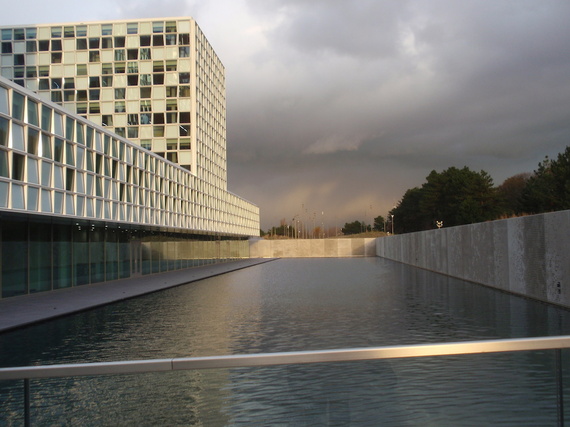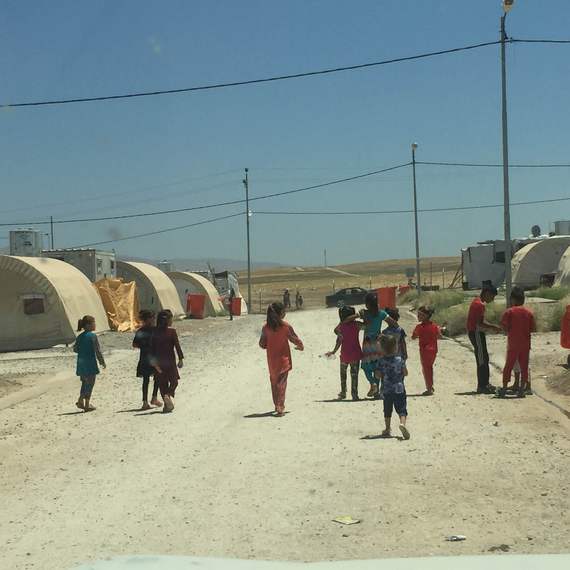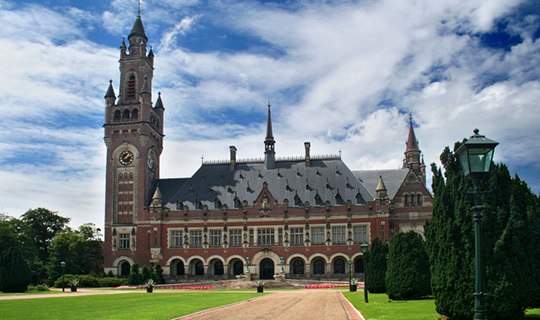Survivors of ISIL at a refugee camp in Iraqi Kurdistan
On June 14th, the House of Commons was the scene of a remarkable debate. The opposition had tabled a motion declaring atrocities by the so-called Islamic State in Iraq and the Levant (ISIL) against Iraqi Christians, Yazidis, Shia, and other minorities as "genocide". The Government countered that such legal determinations "need to be made in an objective, responsible way" by the International Criminal Court (ICC). The motion was defeated 166 votes to 139. What followed were recriminations on both sides; yet another day of political theatre in Parliament, while the traumatized survivors of these unspeakable crimes languish in refugee camps, waiting for justice.
Just two days after the debate in Ottawa, a UN human rights inquiry on ISIL crimes in both Syria and Iraq called for international recognition of genocide against the Yazidi. An earlier 2015 UN report had made a similar finding. The United States and European Parliament have also made similar declarations. But the real question is what difference will it make to label these horrors one way or the other? Will these semantic spectacles change anything other than poll ratings? If we are serious about doing something for the victims, we can start by listening to their voices, rather than politicizing their suffering.
In 1994, when I was a UN prosecutor at The Hague, close to one million Rwandans were exterminated as the world stood by and watched. At first, world leaders refused to call it "genocide". President Clinton later apologized for this failure. His successor President Bush indignantly declared that such things wouldn't happen on his watch. So when the Darfur atrocities were committed a decade after Rwanda, he labeled them as "genocide", but still did nothing. It is safe to assume that these legal abstractions didn't mean much to those that were slaughtered. The victims need meaningful action, not pious platitudes.
In a commendable initiative, Foreign Minister Dion had written to the UN Security Council on May 30th, proposing referral of the ISIL atrocities to the ICC. But even if the Council votes in favour of this proposal, the ICC will issue arrest warrants but will be unable to execute them. This is demonstrated by the case of President Omar Bashir, accused of the Darfur genocide, but still Sudan's Head of State. It should also be considered that ISIL leaders such as Abu Bakr Al-Baghdadi are more likely to be killed than captured. This context may require thinking outside the box.
The International Criminal Court at The Hague
In an effort to give the survivors a greater voice, I am presently involved in a survey of 1,000 refugees in Iraqi Kurdish camps to directly ask what kind of justice they want. Most of their needs are immediate: exhumation of mass-graves, proper burial of their loved ones, liberation of enslaved girls, and therapy to heal their psychological wounds. In the longer term, there has to be a realistic grassroots mechanism for accountability that is not dependent on capturing ISIL leaders. In collaboration with the Canadian Centre for International Justice, I have been assisting the Kurdistan Regional Government to establish an international forum for victims. The June 16th report of the UN Commission endorsed this call for "an internationally-advised Truth Commission which would simultaneously seek to establish a historical record, provide survivors with a catharsis and opportunity for healing by telling their stories, and which would expose and delegitimize ISIS crimes in the region through broadcast and dissemination of the testimony". It is some justice, rather than no justice at all. Surely, this is a low-cost high-impact initiative that Canada could support?
Children at refugee camp in Iraqi Kurdistan
We should also bear in mind that in neighbouring Syria, the Assad Government has killed up to four hundred thousand civilians; ten times more than the notorious jihadists on whom we are fixated. A French proposal for a UN referral of Syria to the ICC was defeated by a Russian veto. But even if prosecutions are not possible, it is still possible to hold the Syrian Government accountable before the International Court of Justice (ICJ) for its failure to punish those most responsible for these atrocities. Prominent Syrian activists have told me that this would go far in stigmatizing the culprits so they can be isolated and removed from power in a post-conflict transition. Again, this is some justice, rather than no justice at all. But it requires a Government to step forward and pursue public interest litigation on behalf of the victims. This is yet another low-cost high-impact initiative that Canada could support.
Instead of politicizing genocide, let us focus on doing something meaningful for the millions of victims in Iraq and Syria. Moral leadership is not about rhetorical posturing; it is about genuine empathy and concrete action.
The International Court of Justice at The Hague



